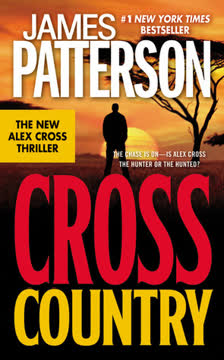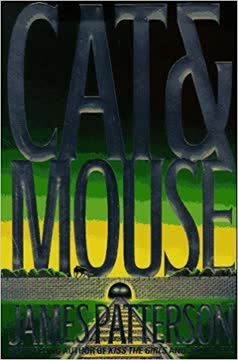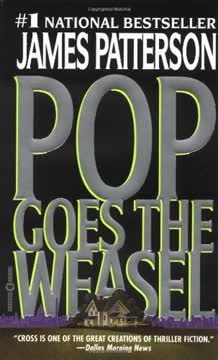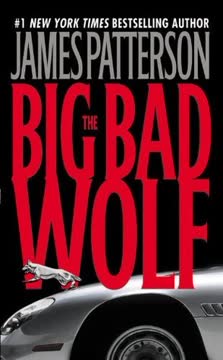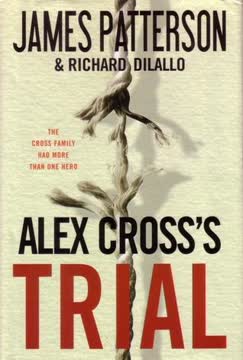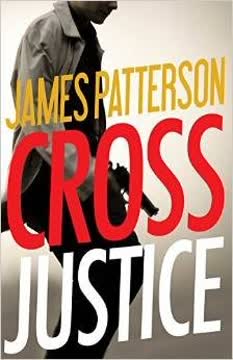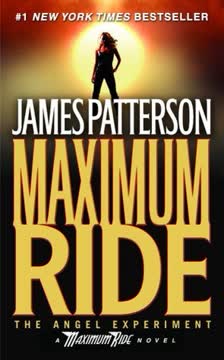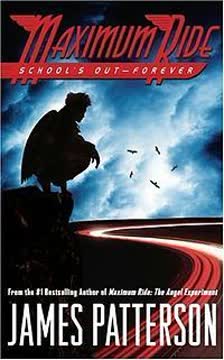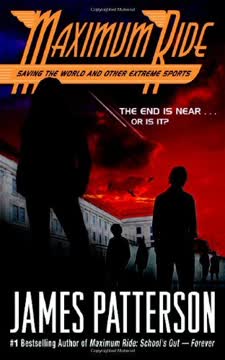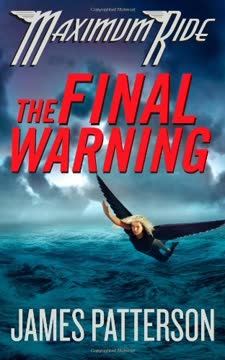Plot Summary
Murderous Beginnings
Detective Alex Cross is called to a horrific crime scene in Georgetown, where an entire family has been slaughtered. Among the victims is Ellie Cox, an old flame from his college days. The brutality of the murders and the personal connection drive Cross to pursue the case with relentless determination. As he delves deeper, he discovers a link to a mysterious figure known as the Tiger, a merciless killer with ties to Africa.
The Tiger's Trail
Cross learns that the Tiger has fled to Africa, prompting him to leave Washington, D.C., and follow the trail. In Nigeria, he encounters a world of corruption and violence, where the Tiger operates with impunity. Cross navigates through a labyrinth of danger, facing off against local thugs and corrupt officials, all while trying to piece together the Tiger's network and motives.
Into the Heart of Darkness
Cross's pursuit takes him to the war-torn regions of Sierra Leone and Sudan, where he witnesses the horrors of civil war and genocide. He partners with Adanne Tansi, a courageous journalist, who provides crucial insights into the Tiger's operations. Together, they uncover a web of illegal trade and exploitation, with the Tiger at the center. The journey tests Cross's resolve and exposes him to the depths of human cruelty.
The Price of Truth
As Cross closes in on the Tiger, he faces betrayal from unexpected quarters. Adanne is murdered, and Cross is captured and tortured by those who want to keep the truth hidden. Despite the physical and emotional toll, Cross remains determined to bring the Tiger to justice. He learns that the Tiger's reach extends into powerful circles, complicating his quest for justice.
A Family in Peril
Back in Washington, Cross's family is kidnapped, and he is forced into a deadly game orchestrated by the Tiger. The stakes are higher than ever as Cross must navigate a treacherous path to save his loved ones. The Tiger taunts him with the possibility of their deaths, pushing Cross to his limits. With the help of his partner Bree and friend Sampson, Cross fights to outsmart the Tiger and rescue his family.
The Final Confrontation
The pursuit culminates in a tense confrontation at a remote farmhouse. Cross faces the Tiger in a brutal fight, driven by the need to protect his family and avenge Adanne's death. The battle is fierce, but Cross's determination prevails. The Tiger is killed, but not before revealing the depth of the conspiracy that has ensnared Cross and his family.
Homecoming and Revelations
With the Tiger defeated, Cross is reunited with his family, but the scars of the ordeal linger. He reflects on the cost of his pursuit and the truths uncovered along the way. The conspiracy reaches into the highest levels of power, leaving Cross with more questions than answers. As he returns to his life in Washington, he remains vigilant, knowing that the fight for justice is far from over.
Characters
Alex Cross
Cross is a seasoned detective with a strong moral compass and a deep commitment to justice. His pursuit of the Tiger is driven by personal loss and a desire to protect his family. Throughout the story, Cross's resilience and resourcefulness are tested, revealing his capacity for both compassion and ruthlessness.
The Tiger
The Tiger is a shadowy figure who orchestrates a network of violence and exploitation across Africa and beyond. His brutality is matched only by his cunning, making him a formidable adversary for Cross. The Tiger's motivations are rooted in power and greed, and his actions leave a trail of devastation in their wake.
Adanne Tansi
Adanne is a fearless reporter who risks everything to expose the truth about the Tiger and the corruption in Africa. Her partnership with Cross is pivotal in uncovering the conspiracy, and her murder serves as a catalyst for Cross's relentless pursuit of justice.
Bree Stone
Bree is Cross's partner and romantic interest, providing unwavering support throughout the investigation. Her strength and intelligence complement Cross's determination, and together they navigate the complexities of the case and the personal challenges it presents.
Nana Mama
Nana Mama is Cross's grandmother and a stabilizing force in his life. Her wisdom and resilience provide comfort and guidance, even as the family faces unimaginable danger. Her abduction by the Tiger underscores the personal stakes of the investigation.
Ian Flaherty
Flaherty is a CIA agent whose true loyalties are shrouded in mystery. Initially appearing as an ally, his betrayal reveals the depth of the conspiracy and the challenges Cross faces in distinguishing friend from foe.
Plot Devices
Dual Setting
The story unfolds across two continents, highlighting the stark differences between the chaos of war-torn Africa and the structured environment of Washington, D.C. This dual setting underscores the global reach of the Tiger's operations and the interconnectedness of the conspiracy.
Moral Ambiguity
The narrative explores the complexities of justice and morality, as Cross navigates a world where the lines between good and evil are often blurred. The characters' motivations and actions challenge traditional notions of heroism and villainy.
High-Stakes Tension
The story maintains a high level of tension through Cross's relentless pursuit of the Tiger and the personal stakes involved. The abduction of Cross's family adds urgency and emotional depth, driving the narrative forward.
Analysis
"Cross Country" delves into the complexities of justice in a world where power and corruption often prevail. Through Alex Cross's journey, the story examines the personal and ethical challenges faced by those who seek to uphold the law. The narrative highlights the interconnectedness of global issues, emphasizing the impact of violence and exploitation on individuals and communities. Ultimately, the book raises questions about the nature of justice and the lengths one must go to achieve it, leaving readers to ponder the true cost of pursuing the truth.
Last updated:
FAQ
0. Synopsis & Basic Details
What is Cross Country about?
- Global Hunt for Justice: Cross Country follows Detective Alex Cross as he pursues a brutal killer, known as "the Tiger," from Washington D.C. to the war-torn regions of Africa, after his former girlfriend and her family are savagely murdered. The investigation quickly escalates into a high-stakes international chase, revealing a complex web of corruption, mercenary operations, and geopolitical intrigue.
- Personal Stakes & Moral Dilemmas: Driven by personal loss and a deep sense of justice, Cross navigates a world where the lines between good and evil are blurred, facing betrayal, torture, and the constant threat to his own life. His journey forces him to confront the true cost of truth and the moral ambiguity required in a global fight against ruthless power.
- Family in Peril: The narrative intensifies when the Tiger retaliates by kidnapping Cross's beloved grandmother and children, transforming the professional pursuit into a desperate race against time to save his family from the same fate as his victims. This personalizes the global conflict, highlighting the universal impact of violence and corruption.
Why should I read Cross Country?
- Intense, Fast-Paced Thriller: Readers should dive into Cross Country for its relentless pacing, characteristic of James Patterson's style, which keeps the tension high from the opening pages to the climactic confrontation. The narrative's rapid shifts between continents and escalating stakes ensure a gripping experience.
- Deep Dive into Geopolitical Themes: Beyond the thrilling plot, the book offers a stark, unflinching look at real-world issues like civil war, genocide, and corporate corruption in Africa, providing a thought-provoking backdrop to the personal quest for justice. It challenges readers to consider the global impact of power and greed.
- Alex Cross's Emotional Journey: Fans of Alex Cross will appreciate the profound emotional depth as he grapples with personal loss, moral ambiguity, and the ultimate test of his resolve when his own family is targeted. His internal struggles and unwavering determination make for a compelling character study amidst the chaos.
What is the background of Cross Country?
- Real-World Geopolitical Context: Cross Country is deeply rooted in the complex geopolitical landscape of West Africa, particularly Nigeria, Sierra Leone, and Sudan (Darfur). The narrative explicitly references ongoing conflicts, such as the Janjaweed militias in Darfur (Chapter 80), the diamond trade's role in civil war (Chapter 54), and the struggle for oil control in the Niger Delta (Chapter 97), reflecting real-world issues of the time it was written.
- Corruption and Mercenary Operations: The story highlights pervasive corruption within local governments and police forces in Africa, as well as the widespread use of mercenary groups and "killers for hire" like the Tiger and his "wild boys" (Chapter 10). This background underscores the challenges of justice in regions where power is often bought and sold.
- Interconnected Global Economy: The plot reveals how international corporations (like Unilight International, Chapter 102) and foreign governments (including the US and China, Chapter 154) are deeply entangled in Africa's resource conflicts, particularly oil. This provides a critical commentary on how global economic interests fuel local violence and instability.
What are the most memorable quotes in Cross Country?
- "T'agba ha nde, a a ye ogunja.": Nana Mama's Yoruban proverb, meaning "As one approaches an elder's status, one ceases to indulge in battles" (Chapter 32), serves as a poignant, ironic warning to Alex Cross about the futility of his relentless pursuit, especially as he ventures into increasingly dangerous territory.
- "You should've killed me when you had the chance. I'm very persistent. I don't ever give up.": Alex Cross's defiant declaration to Steven Millard (Chapter 158) encapsulates his unwavering resolve and the core of his character, highlighting his enduring commitment to justice despite immense personal cost and systemic opposition.
- "I am nothing.": Cross's forced utterance to the Tiger (Chapter 141) under duress is a moment of profound humiliation and vulnerability, yet it also subtly foreshadows his ultimate refusal to be broken, demonstrating his inner strength even when stripped of all power.
What writing style, narrative choices, and literary techniques does James Patterson use?
- Short, Punchy Chapters: Patterson employs his signature style of extremely short chapters, often ending with cliffhangers, to maintain a breakneck pace and heighten suspense, propelling the reader through the complex international plot of Cross Country. This technique creates a sense of urgency and constant forward momentum.
- Alternating Perspectives (Limited): While primarily from Alex Cross's first-person perspective, the narrative occasionally shifts to the third-person limited perspective of the Tiger (e.g., Chapter 7, Chapter 27, Chapter 53, Chapter 76). This provides glimpses into the antagonist's chilling mindset and motivations, enhancing the sense of dread and understanding of his brutal efficiency.
- Direct and Unflinching Language: Patterson uses straightforward, often graphic language to describe the violence and suffering, particularly in the African sections, which serves to underscore the harsh realities of the conflicts depicted. This directness aims to evoke a strong emotional response and emphasize the gravity of the themes explored in Cross Country.
1. Hidden Details & Subtle Connections
What are some minor details that add significant meaning?
- Nana Mama's Subtle Warnings: Before Alex leaves for Africa, Nana Mama strategically places news articles about Nigerian conflicts ("The Deadly Delta," "Many Factions, No Peace for Nigeria") and a book by Wole Soyinka with a relevant proverb (Chapter 28, Chapter 32). These seemingly minor acts are her desperate, indirect attempts to warn Alex of the dangers he faces, highlighting her deep concern and intuitive understanding of the world's harsh realities.
- The Repeated Breaking of Cross's Nose: Alex's nose is broken multiple times throughout his ordeal in Africa (Chapter 37, Chapter 58). This recurring injury symbolizes his vulnerability and the repeated assaults on his physical and psychological well-being, representing how his sense of order and justice is continually fractured by the chaos and brutality he encounters.
- Ellie Cox's Manuscript Details: The title of Ellie's manuscript, "Deathtrip," and its subtitle, "Crime as a Way of Life, of Doing Business, in Central Africa" (Chapter 10), are not just plot devices but encapsulate the core themes of the entire novel. The specific mention of "Family Massacre" within her index foreshadows the very fate she and other families suffer, revealing the deep, systemic nature of the violence Alex is investigating.
What are some subtle foreshadowing and callbacks?
- Kyle Craig's Ominous Call: The unexpected phone call from psychopath Kyle Craig (Chapter 157) at the very end of Cross Country, where he claims to have been "right there in Millard's house," serves as a chilling callback to Cross's past adversaries and subtly foreshadows that the fight against evil is never truly over, even after a major case is "solved." It suggests a deeper, more pervasive network of malevolence.
- The "Dragon Slayer" Motif: Cross internally refers to himself as the "Dragon Slayer" (Chapter 32) early in his journey to Africa, a self-assigned title that foreshadows his ultimate confrontation with the monstrous Tiger. This heroic archetype, however, is continually challenged by the moral ambiguity and overwhelming scale of the violence he faces, making his eventual "slaying" a complex, rather than purely triumphant, act.
- The Tiger's Nickname Origin: The detail that "there were no tigers in Africa, which was how he got his nickname" (Chapter 27) subtly foreshadows the Tiger's unique, almost mythical status as a killer. It implies he is an anomaly, a force of nature unlike any other, making him a more formidable and symbolic antagonist in Cross Country.
What are some unexpected character connections?
- Ellie Cox and Adanne Tansi's Collaboration: The revelation that Alex's murdered ex-girlfriend, Ellie Cox, had met and shared information with Adanne Tansi (Chapter 107) is a crucial, unexpected connection. It links the initial D.C. murders directly to the African conspiracy and Adanne's investigation, showing that the victims were not random but targeted for their knowledge, deepening the personal stakes for Cross.
- Ian Flaherty's Double Betrayal: Ian Flaherty, initially presented as Alex's CIA contact and reluctant ally, is later revealed to be working for the Chinese and involved in the kidnapping of Alex's family (Chapter 156). This unexpected betrayal highlights the pervasive corruption and moral ambiguity within intelligence agencies, blurring the lines between "good guys" and "bad guys" in Cross Country.
- Steven Millard's Complicity: Steven Millard, the high-ranking CIA official, is ultimately exposed as the one who hired the Tiger and orchestrated the oil meetings with the Chinese (Chapter 158). This connection reveals that the conspiracy extends to the highest levels of American intelligence, making the conflict far more complex than a simple pursuit of a mercenary.
Who are the most significant supporting characters?
- Moses, the Amputee Guide: Moses, the Sierra Leonean amputee who guides Alex through Koidu (Chapter 54), is significant for embodying the human cost of the diamond wars and the resilience of the African people. His personal story of family massacre and his willingness to help a stranger despite his own trauma provide a powerful counterpoint to the Tiger's brutality, offering Alex a glimpse of the inherent goodness amidst the horror.
- Father Bombata, the Clerical Ally: Father Bombata, the Yoruban priest Alex meets on the plane (Chapter 33) and later contacts in Lagos, serves as a crucial, albeit subtle, spiritual and practical guide. He not only provides Alex with shelter and a connection to Adanne but also offers a moral compass and a reminder of faith in a world consumed by violence, subtly influencing Alex's journey in Cross Country.
- Bronson "Pop-Pop" James, the Child Sociopath: Pop-Pop (Chapter 20), Alex's eleven-year-old psych client, offers a chilling parallel to the "wild boys" in the Tiger's gang. His prodigious confidence and casual embrace of violence, despite his young age, provide a disturbing insight into the psychological complexities of young killers and the potential for psychopathy to manifest early, making him a significant, if brief, character study.
2. Psychological, Emotional, & Relational Analysis
What are some unspoken motivations of the characters?
- Alex Cross's Guilt and Atonement: Beyond avenging Ellie's death, Alex's relentless pursuit of the Tiger is subtly driven by a deep-seated guilt over his past inability to protect his first wife, Maria, and a subconscious need for atonement. His internal monologue often circles back to his family, suggesting that this case is a way to prove his capacity to protect those he loves, as seen when he thinks, "I was the Dragon Slayer" (Chapter 32).
- The Tiger's Vengeful Origins: Abidemi Sowande's (the Tiger's real name) motivation, though presented as "just business," is rooted in a deep-seated hatred for "the white man, and especially white families" (Chapter 27), stemming from his childhood experiences at Versailles and the loss of his family fortune. This unspoken, personal vendetta fuels his extreme brutality, making his actions more than mere mercenary work.
- Adanne Tansi's Personal Crusade: Adanne's unwavering courage and determination to expose the truth are driven by the unspoken trauma of her rape and subsequent infertility, as well as the murder of her brother, Kalu (Chapter 87, Chapter 95). Her journalistic mission is a deeply personal quest for justice and a way to reclaim agency in a world that has taken so much from her, making her a powerful, emotionally complex character in Cross Country.
What psychological complexities do the characters exhibit?
- Cross's Trauma and Numbness: Alex Cross exhibits significant psychological complexity, oscillating between intense emotional pain (e.g., crying at Ellie's funeral, Chapter 20) and a professional numbness that allows him to function in horrific situations. His internal struggle to process the atrocities he witnesses, particularly in Africa, and his fear of losing his own family, reveal the profound psychological toll of his work.
- The Tiger's Calculated Psychopathy: The Tiger (Abidemi Sowande) is a chilling study in psychopathy, displaying a complete lack of empathy, a calculated enjoyment of cruelty, and a detached "business" approach to murder. His ability to order horrific acts, like boiling children in oil (Chapter 27), without remorse, and his taunting of Cross, underscore a deeply disturbed yet highly functional mind.
- Flaherty's Moral Erosion: Ian Flaherty's character embodies the moral erosion that can occur within covert operations. His initial reluctance to help Cross, followed by his outright betrayal and complicity in the kidnapping, reveals a man who has rationalized his actions for perceived greater good or personal gain, highlighting the psychological toll of operating in morally ambiguous zones.
What are the major emotional turning points?
- Ellie Cox's Murder: The discovery that Ellie Cox, Alex's first love, is among the victims of the Georgetown massacre (Chapter 2) is the initial, deeply personal emotional turning point for Cross. It shatters his professional detachment and fuels his relentless, almost obsessive, pursuit of the Tiger, transforming the case from routine to profoundly personal.
- Adanne Tansi's Brutal Murder: Adanne's murder and rape by the Tiger in Kirikiri Prison (Chapter 113) is a devastating emotional turning point for Alex. It represents the ultimate failure to protect an innocent ally and ignites a raw, unbridled rage within him, pushing him to the brink of moral compromise and a singular focus on vengeance.
- The Family's Kidnapping and Reunion: The kidnapping of Nana Mama, Jannie, and Ali (Chapter 125) is the most significant emotional turning point, pushing Alex to his absolute limits of fear and desperation. Their eventual reunion (Chapter 155) provides immense relief and joy, but also leaves lingering trauma and a renewed commitment to his family, profoundly altering his perspective on his work and priorities.
How do relationship dynamics evolve?
- Cross and Bree's Tested Partnership: The relationship between Alex and Bree evolves under extreme pressure, moving from a stable partnership to one strained by Alex's dangerous solo mission and Bree's fear for his safety. Her initial reluctance to support his Africa trip (Chapter 25) and her later "Fuck you" (Chapter 131) when his family is taken, reveal the deep emotional investment and the challenges of their bond, ultimately strengthening their commitment despite the trauma.
- Cross and Nana Mama's Enduring Bond: Nana Mama's role evolves from a moral anchor and caregiver to an active, albeit indirect, participant in Alex's mission, as seen in her attempts to dissuade him from going to Africa (Chapter 28). Her abduction underscores her vital importance to Alex, and their reunion reaffirms their unbreakable, foundational bond, highlighting her as the emotional heart of the Cross family.
- Cross and Adanne's Developing Trust and Affection: Alex's relationship with Adanne Tansi quickly evolves from a professional alliance to one of deep trust, mutual respect, and undeniable affection. Their shared experiences in Darfur, Adanne's vulnerability about her past (Chapter 87), and their brief, intimate moments (Chapter 98) forge a powerful connection that makes her murder all the more devastating for Alex, leaving a lasting impact on him.
4. Interpretation & Debate
Which parts of the story remain ambiguous or open-ended?
- Kyle Craig's Final Appearance: The most ambiguous element is Kyle Craig's phone call to Alex at the very end, claiming, "I was right there in Millard's house with you" (Chapter 158). It's unclear if Craig was literally present, a master manipulator with an unseen network, or a psychological manifestation of Alex's own dark side and the pervasive nature of evil, leaving readers to debate the true extent of his influence and the lingering threat he represents.
- The Full Extent of the Conspiracy: While Steven Millard is arrested and Ian Flaherty is implicated, the novel leaves the ultimate scope of the "conspiracy" somewhat open-ended. The involvement of "several very important corporations" and the Chinese (Chapter 154), along with the implication that "somebody had to be" in control (Chapter 153), suggests a deeper, more entrenched network of power and corruption that extends beyond the individuals caught, implying that true justice remains elusive.
- The "Many Tigers" Concept: The idea that "many men are called the Tiger" (Chapter 64), as suggested by the boy Benjamin and Flaherty, remains partially ambiguous. While Alex focuses on Abidemi Sowande, the notion of multiple "Tigers" could imply a decentralized network of killers-for-hire, or a symbolic representation of the widespread, interchangeable nature of violence in the region, leaving the reader to ponder if Alex truly eliminated the entire threat.
What are some debatable, controversial scenes or moments in Cross Country?
- Alex Cross's Moral Compromises in Africa: Cross's actions in Africa, particularly his willingness to kill the Tiger (Chapter 90) and his participation in armed conflict (Chapter 85), are highly debatable. He operates outside the law, engaging in violence that would be unacceptable in his D.C. jurisdiction. This raises questions about whether his pursuit of justice justifies such moral ambiguity, especially when confronted with the brutal realities of war-torn regions.
- The Torture of Alex Cross: The detailed depiction of Alex's torture through "wall-standing," sleep deprivation, and psychological manipulation (Chapter 148-150) is a controversial moment. It forces readers to confront the harsh realities of interrogation techniques, and the fact that it's implied to be carried out by American agents (or those working for them) raises ethical questions about the methods used by "the good guys" in the fight against terrorism and corruption.
- The Tiger's Final Act of Desecration: The Tiger's rape of Adanne's corpse (Chapter 113) is an extremely controversial and disturbing scene. While intended to highlight his depravity and taunt Alex, its graphic nature and the specific act of sexual violence against a dead body can be seen as gratuitous or exploitative, sparking debate about its narrative necessity and impact on the reader.
Cross Country Ending Explained: How It Ends & What It Means
- Immediate Resolution and Family Reunion: Cross Country culminates with Alex Cross rescuing his family from Ian Flaherty
Review Summary
Cross Country receives mixed reviews, with some praising its fast-paced action and exploration of African issues, while others criticize its implausible plot and out-of-character behavior from Alex Cross. Many readers find the violence excessive and the African segments difficult to believe. Some appreciate Patterson's attempt to shed light on real-world problems, but others feel it detracts from the series' strengths. Despite criticisms, fans of the series still find enjoyment in the quick read and familiar characters, though it's generally not considered one of the stronger entries.
Alex Cross Series Series
Download PDF
Download EPUB
.epub digital book format is ideal for reading ebooks on phones, tablets, and e-readers.
